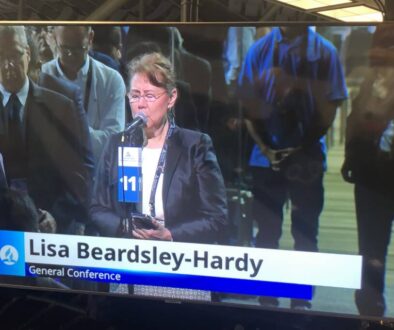Adventists will Celebrate Peace Sabbath on May 23
From News Release, May 12, 2015: Corrected. The Adventist Peace Fellowship (APF) has designated the Sabbath before Memorial Day in the United States (May 23) as the first annual Adventist Peace Sabbath. In other nations it will be scheduled at other points in the year.
This particular Sabbath was selected because it is an occasion when some congregations devote part of their worship service to honor those who have served in the military. In view of the denomination’s official teaching of conscientious objection in times of war, and in because of the sacrifices and heroism of countless Adventist noncombatants and pacifists, APF has urged Adventist churches to also remember Christ’s admonition, “blessed are the peacemakers.”
A resource is available to provide material for worship. The six-page guide suggests four appropriate hymns from the Seventh-day Adventist Hymnal, and it includes the full text for an invocation, a benediction, four Scripture readings and a litany or responsive reading. The theme is “Let Us Be Peacemakers.” The four Scripture readings include two from the Old Testament (Isaiah and a Psalm) and two from the New Testament, one from the Epistles and one from the Gospels.
The worship resource was created by APF member Yi Shen Ma with assistance from Dr. Maury Jackson, a theology professor in the H. M. S. Richards Divinity School at La Sierra University, and Dr. Nicholas Zork, coordinator of the Music and Worship Conferences at Andrews University for the Center on Youth Evangelism. Because everything is included except the words of the hymns, this resource can be used in small groups or family worship.
“We are also urging all Adventist churches to draw inspiration from the five Adventist congregations that have [voted] to be known as official Adventist Peace Churches,” said a statement from APF. “May 23 is a Sabbath when Adventists can bear creative witness in our worship life to the good news of Christ’s peace.”
APF is an international organization of Adventist Bible scholars, theologians, clergy and laity. It has the purpose of supporting the traditional Seventh-day Adventist teaching about refusing to participate in war-making activities in the military or war-related civilian industries.
The worship resource is formatted for printing as a PDF and can be downloaded free of charge here: https://adventistpeace.files.wordpress.com/2015/04/adventistpeacesabbathservice.pdf



